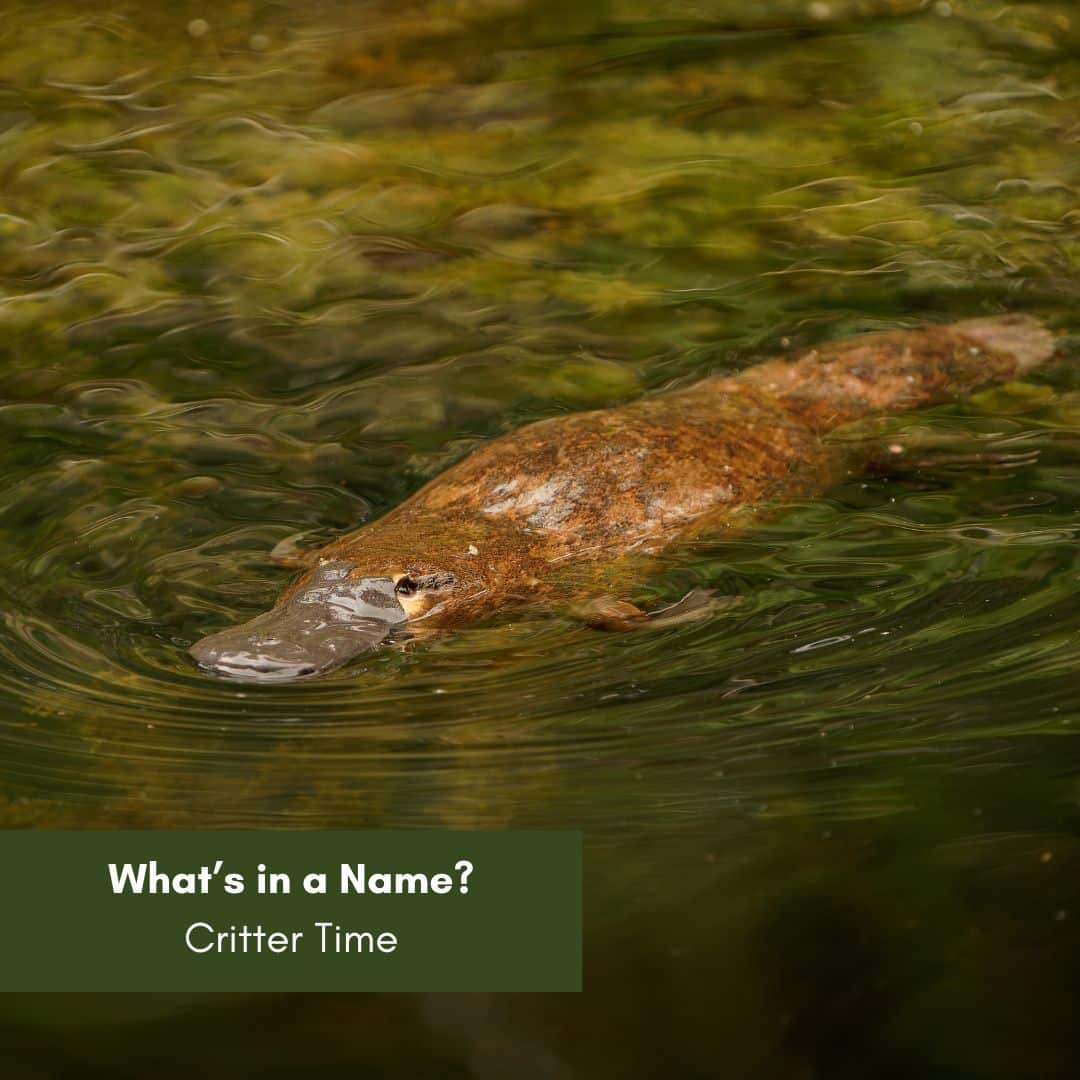So far we’ve looked mostly at plant names and what they mean but as an equal opportunities columnist I figured I’d better do something for the critter lovers amongst us and translate a few animal names
Echidna Tachyglossus aculeatus Tachy – fast, -glossus tongue, aculatus spiny, so fast tongue spiny thing, which seems descriptive enough.
Echidna (image from: https://www.newscientist.com/definition/echidnas/)
Platypus Ornithorhynchus anatinus Ornith Bird -rhynchus nose/beak (Greek), anatinus duck like (Latin), so translated as “duck like bird nose”, which seems more of an insult than a description.
Oi, Bird nose!
Koala Phascolarctos cinereus Phasco – pouched, arctos bear, cinereus ash coloured, so ash coloured (greyish) pouched bear, which is close enough
Drop Bear Phascolarctos incognito – Hidden pouched bear, referring to the difficulty of differentiating this from the common Koala. (The Australian Museum recognises them as Thlylarctos plummetus which translates as falling pouched bear, though there is ongoing research into it’s genetics and taxonomy. Thylo and Phasco both mean pouched)
Recommended safety gear for handling Drop Bears (from ABC news)
Rainbow Lorikeet Trichoglossus moluccanus. Tricho (from the Greek Thrix) “hairy”, glossus tongue, moluccanus from the Moluccas Islands, (where they mistakenly believed to originate from), so ignoring their mistaken place of origin the genus refers to their hairy tongues which are quite useful for extracting nectar from flowers.
Magpie Gymnorhina tibicen. Gymno from Ancient Greek “gumnos” for “naked” or “bare” rhina from rhis, rhinos meaning “nostrils“. tibicen meaning “flute player”, bare nosed flute player.

